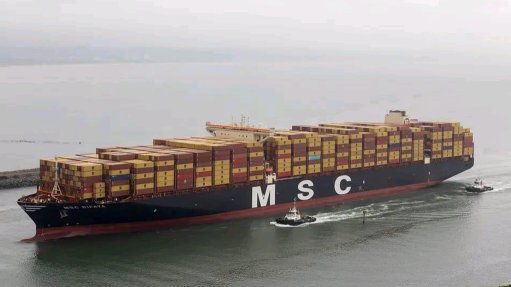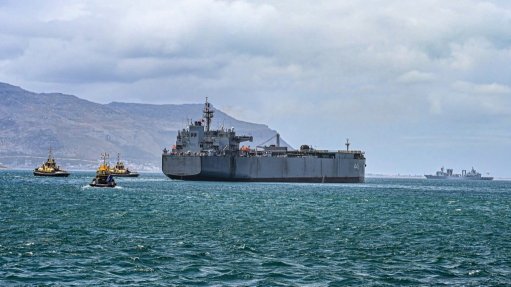Western Cape water crisis
I think that living by the sea and near Table Mountain has an effect on the local population of Cape Town. Do note that I was brought up in the then Transvaal and, thus, I was told how intelligent the Capetonians were; how civilised and how caring, compared with us carpet baggers who lived on the wrong side of the Hottentots Holland Mountains.
The recent water crisis in Cape Town has revealed that, far from being intelligent, civilised and caring, the Capies are just like the rest of us. No better, no worse.
The rain in the Cape has become steadily less over the past five years. The rains started later and persisted less and there were no weeks of endless pour where the dogs get wet and never dry out. You cannot get dry firewood anywhere and there is a queue around the block for the laundromat.
I concluded that, since the cyclonic south-east wind brings calm and the cyclonic north-west wind brings rain, interrupting the wind flow would cause cyclones to drift south and deprive the Cape of rain. I worked out that about 1% of the cyclonic wind flow would be used up by all the wind farms near to Port Elizabeth and that, like a 10 mm chip on a helicopter blade, this would be enough to disrupt the normal wind/rain flow. I sent this theory to John Maytham, of Cape Talk Radio, who sent it to a climatologist. The response of the climatologist was, I think I may say, somewhat scornful and quite dismissive.
We have an Internet water dashboard for the Western Cape and the needle is creeping towards ‘empty’, now referred to as Day Zero, when all the water taps will be turned off – or so the local government says.
Naturally, this has caused screams of protest and endless questions, such as: How can children go to school if there is no running water? (Answer: the same way that I did – walk and drink from the rain tank) and other wild fears.
Sensible people, such as myself, have bought rainwater storage tanks and some are full from the last rain. Others have bought storage tanks and fill them up from the municipal mains against the day that the taps go off. Others have bought dehumidifiers and drain the condensate into tanks. Still others, for some bizarre reason, are now thronging to the few freshwater springs that rise on the mountain and there are crowds and crowds of people filling up bottles, big and small, with spring water. Why? The water is still flowing in the taps and one can fill up whatever receptacles in the comfort of one’s own home?
All persons are now encouraged to use no more than 50 ℓ of water a day. This has given birth to a whole army of do-gooders who rigorously make their family adhere to this limit by limiting shower times, not flushing toilets all the time and using a minimum amount of water for the washing up.
Naturally, the rose garden and the back lawn look like the Kalahari in winter and a new sign of being politically correct is to have the latest German luxury sedan unwashed and covered in a veneer of dust.
The local authorities seem to be fiddling around and really not doing much. They should be treating this like an engineering problem, but they are not. So, will Day Zero happen? Watch this space.
Article Enquiry
Email Article
Save Article
Feedback
To advertise email advertising@creamermedia.co.za or click here
Comments
Press Office
Announcements
What's On
Subscribe to improve your user experience...
Option 1 (equivalent of R125 a month):
Receive a weekly copy of Creamer Media's Engineering News & Mining Weekly magazine
(print copy for those in South Africa and e-magazine for those outside of South Africa)
Receive daily email newsletters
Access to full search results
Access archive of magazine back copies
Access to Projects in Progress
Access to ONE Research Report of your choice in PDF format
Option 2 (equivalent of R375 a month):
All benefits from Option 1
PLUS
Access to Creamer Media's Research Channel Africa for ALL Research Reports, in PDF format, on various industrial and mining sectors
including Electricity; Water; Energy Transition; Hydrogen; Roads, Rail and Ports; Coal; Gold; Platinum; Battery Metals; etc.
Already a subscriber?
Forgotten your password?
Receive weekly copy of Creamer Media's Engineering News & Mining Weekly magazine (print copy for those in South Africa and e-magazine for those outside of South Africa)
➕
Recieve daily email newsletters
➕
Access to full search results
➕
Access archive of magazine back copies
➕
Access to Projects in Progress
➕
Access to ONE Research Report of your choice in PDF format
RESEARCH CHANNEL AFRICA
R4500 (equivalent of R375 a month)
SUBSCRIBEAll benefits from Option 1
➕
Access to Creamer Media's Research Channel Africa for ALL Research Reports on various industrial and mining sectors, in PDF format, including on:
Electricity
➕
Water
➕
Energy Transition
➕
Hydrogen
➕
Roads, Rail and Ports
➕
Coal
➕
Gold
➕
Platinum
➕
Battery Metals
➕
etc.
Receive all benefits from Option 1 or Option 2 delivered to numerous people at your company
➕
Multiple User names and Passwords for simultaneous log-ins
➕
Intranet integration access to all in your organisation


















